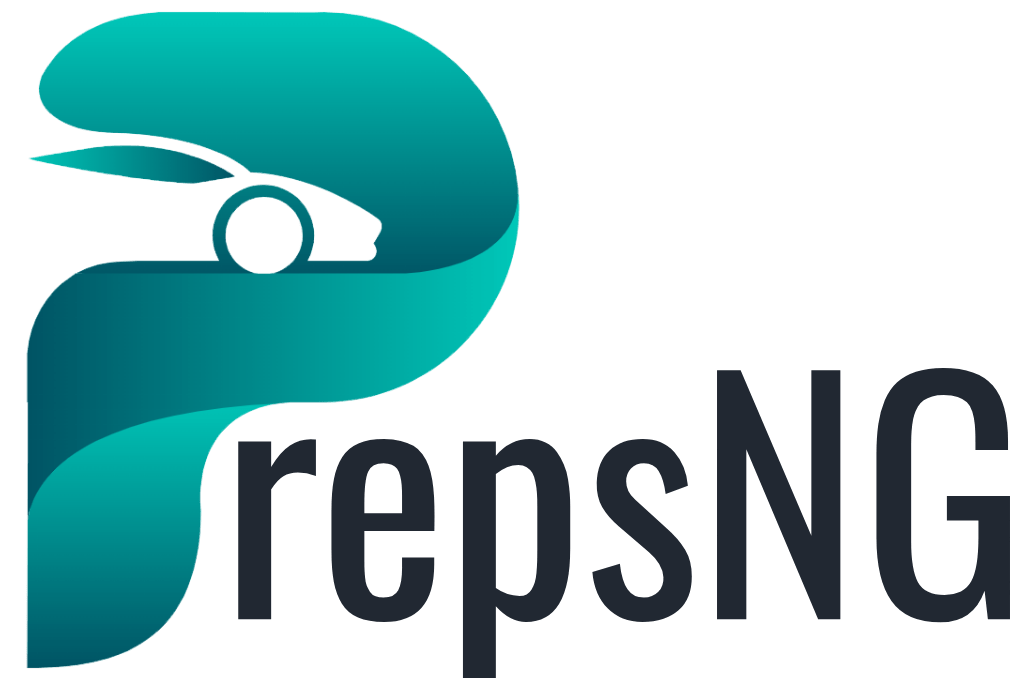The Ignatius Ajuru University of Education (IAUE) has officially released the approved regular undergraduate programme fees schedule for the 2026/2027 academic session. This comprehensive guide provides a detailed breakdown of all fees for both indigenes and non-indigenes across all years of study.
- About Ignatius Ajuru University of Education (IAUE)
- IAUE School Fees Structure /
- Complete IAUE School Fees Breakdown for Indigenes (Rivers State)
- Complete IAUE School Fees Breakdown for Non-Indigenes (Other States)
- Understanding the Fee Components
- Quick Comparison: Indigenes vs Non-Indigenes
- How to Pay IAUE School Fees
- Frequently Asked Questions (FAQs)
- Important Contact Information
- Wrapping Up
About Ignatius Ajuru University of Education (IAUE)
Ignatius Ajuru University of Education (IAUE), formerly Rivers State College of Education, is located in Port Harcourt, Rivers State, Nigeria. The institution was upgraded to a full-fledged university in 2009 and is dedicated to producing quality teachers and education professionals.
Mission: To provide quality teacher education and contribute to educational development in Nigeria and beyond.
Join any of our Social Media Pages to receive Latest Updates!IAUE School Fees Structure 2026/2027
The university operates a differentiated fee structure based on:
- Student Category: Indigenes (Rivers State) vs Non-Indigenes (Other States)
- Year of Study: Year 1 to Year 6 (including Direct Entry Year 2)
- Programme Type: Science vs Non-Science courses
Key Highlights
For Rivers State Indigenes:
- Year 1 (100 Level) Non-Science: ₦74,600
- Year 1 (100 Level) Science: ₦76,600
- Final Year (YR 5/6) charges apply
For Non-Indigenes:
- Year 1 (100 Level) Non-Science: ₦101,600
- Year 1 (100 Level) Science: ₦103,600
- Significantly higher than indigene rates
Complete IAUE School Fees Breakdown for Indigenes (Rivers State)
Non-Science Programmes (B.A/B.A.ED/B.SC/B.SC.ED/B.ED)
| Fee Item | YR1 | D/E YR2 | YR2 | YR3 | YR4 | YR5 | YR6 |
|---|---|---|---|---|---|---|---|
| Development Levy | ₦5,000 | ₦5,000 | ₦5,000 | ₦5,000 | ₦5,000 | ₦5,000 | ₦5,000 |
| Registration | ₦5,000 | ₦5,000 | ₦4,000 | ₦4,000 | ₦4,000 | ₦4,000 | ₦4,000 |
| General Facilities | ₦6,000 | ₦6,000 | ₦5,000 | ₦5,000 | ₦5,000 | ₦5,000 | ₦5,000 |
| Library | ₦7,000 | ₦7,000 | ₦5,000 | ₦5,000 | ₦5,000 | ₦5,000 | ₦5,000 |
| Sports | ₦5,000 | ₦5,000 | ₦5,000 | ₦5,000 | ₦5,000 | ₦5,000 | ₦5,000 |
| Health Services | ₦5,000 | ₦5,000 | ₦5,000 | ₦5,000 | ₦5,000 | ₦5,000 | ₦5,000 |
| Examination | ₦5,000 | ₦5,000 | ₦4,000 | ₦4,000 | ₦4,000 | ₦4,000 | ₦4,000 |
| Teaching Practice | ₦0 | ₦0 | ₦0 | ₦3,500 | ₦3,500 | ₦3,500 | ₦3,500 |
| Caution Fee | ₦5,000 | ₦5,000 | ₦0 | ₦0 | ₦0 | ₦0 | ₦0 |
| Security Levy | ₦5,000 | ₦5,000 | ₦5,000 | ₦5,000 | ₦5,000 | ₦5,000 | ₦5,000 |
| Utility Levy | ₦10,000 | ₦10,000 | ₦10,000 | ₦10,000 | ₦10,000 | ₦10,000 | ₦10,000 |
| Accreditation | ₦3,600 | ₦3,600 | ₦3,600 | ₦3,600 | ₦3,600 | ₦3,600 | ₦3,600 |
| Matric Fee | ₦5,000 | ₦5,000 | ₦0 | ₦0 | ₦0 | ₦0 | ₦0 |
| Extra Year Charge | ₦0 | ₦0 | ₦0 | ₦0 | ₦0 | ₦30,000 | ₦30,000 |
| Sanitation | ₦5,000 | ₦5,000 | ₦5,000 | ₦5,000 | ₦5,000 | ₦5,000 | ₦5,000 |
| Lab A | ₦3,000 | ₦3,000 | ₦3,000 | ₦3,000 | ₦3,000 | ₦3,000 | ₦3,000 |
| TOTAL NON-SCIENCE | ₦74,600 | ₦74,600 | ₦59,600 | ₦63,100 | ₦63,100 | ₦93,100 | ₦93,100 |
Science Programmes (Including Lab B – SCI & TECH)
| Fee Item | YR1 | D/E YR2 | YR2 | YR3 | YR4 | YR5 | YR6 |
|---|---|---|---|---|---|---|---|
| Lab B – SCI & TECH | ₦5,000 | ₦5,000 | ₦5,000 | ₦5,000 | ₦5,000 | ₦5,000 | ₦5,000 |
| TOTAL SCIENCE | ₦76,600 | ₦76,600 | ₦61,600 | ₦65,100 | ₦65,100 | ₦95,100 | ₦95,100 |
Note: Science students pay all the above non-science fees PLUS an additional ₦5,000 Lab B fee.
Complete IAUE School Fees Breakdown for Non-Indigenes (Other States)
Non-Science Programmes
| Fee Item | YR1 | D/E YR2 | YR2 | YR3 | YR4 | YR5 | YR6 |
|---|---|---|---|---|---|---|---|
| Development Levy | ₦20,000 | ₦20,000 | ₦15,000 | ₦15,000 | ₦15,000 | ₦15,000 | ₦15,000 |
| Registration | ₦15,000 | ₦15,000 | ₦12,000 | ₦12,000 | ₦12,000 | ₦12,000 | ₦12,000 |
| General Facilities | ₦6,000 | ₦6,000 | ₦5,000 | ₦5,000 | ₦5,000 | ₦5,000 | ₦5,000 |
| Library | ₦9,000 | ₦9,000 | ₦5,000 | ₦5,000 | ₦5,000 | ₦5,000 | ₦5,000 |
| Sports | ₦5,000 | ₦5,000 | ₦5,000 | ₦5,000 | ₦5,000 | ₦5,000 | ₦5,000 |
| Health Services | ₦5,000 | ₦5,000 | ₦5,000 | ₦5,000 | ₦5,000 | ₦5,000 | ₦5,000 |
| Examination | ₦5,000 | ₦5,000 | ₦4,000 | ₦4,000 | ₦4,000 | ₦4,000 | ₦4,000 |
| Teaching Practice | ₦0 | ₦0 | ₦0 | ₦3,500 | ₦3,500 | ₦3,500 | ₦3,500 |
| Caution Fee | ₦5,000 | ₦5,000 | ₦0 | ₦0 | ₦0 | ₦0 | ₦0 |
| Security Levy | ₦5,000 | ₦5,000 | ₦5,000 | ₦5,000 | ₦5,000 | ₦5,000 | ₦5,000 |
| Utility Levy | ₦10,000 | ₦10,000 | ₦10,000 | ₦10,000 | ₦10,000 | ₦10,000 | ₦10,000 |
| Accreditation | ₦3,600 | ₦3,600 | ₦3,600 | ₦3,600 | ₦3,600 | ₦3,600 | ₦3,600 |
| Matric Fee | ₦5,000 | ₦5,000 | ₦0 | ₦0 | ₦0 | ₦0 | ₦0 |
| Extra Year Charge | ₦0 | ₦0 | ₦0 | ₦0 | ₦0 | ₦30,000 | ₦30,000 |
| Sanitation | ₦5,000 | ₦5,000 | ₦5,000 | ₦5,000 | ₦5,000 | ₦5,000 | ₦5,000 |
| Lab A | ₦3,000 | ₦3,000 | ₦3,000 | ₦3,000 | ₦3,000 | ₦3,000 | ₦3,000 |
| TOTAL NON-SCIENCE | ₦101,600 | ₦101,600 | ₦77,600 | ₦81,100 | ₦81,100 | ₦111,100 | ₦111,100 |
Science Programmes (Including Lab B – SCI & TECH)
| Fee Item | YR1 | D/E YR2 | YR2 | YR3 | YR4 | YR5 | YR6 |
|---|---|---|---|---|---|---|---|
| Lab B – SCI & TECH | ₦5,000 | ₦5,000 | ₦5,000 | ₦5,000 | ₦5,000 | ₦5,000 | ₦5,000 |
| TOTAL SCIENCE | ₦103,600 | ₦103,600 | ₦79,600 | ₦83,100 | ₦83,100 | ₦113,100 | ₦113,100 |
Understanding the Fee Components
Let’s break down what each fee covers:
Join any of our Social Media Pages to receive Latest Updates!1. Development Levy (₦5,000 – ₦20,000)
- Contributes to infrastructure development
- Building maintenance and upgrades
- Campus expansion projects
- Higher for non-indigenes
2. Registration Fee (₦4,000 – ₦15,000)
- Course registration processing
- Semester enrollment
- Administrative processing
- Higher in Year 1 and Direct Entry Year 2
3. General Facilities (₦5,000 – ₦6,000)
- Access to general university facilities
- Classrooms and lecture halls
- Common areas and utilities
- Campus amenities
4. Library Fee (₦5,000 – ₦9,000)
- Access to university libraries
- Borrowing privileges
- Digital resources and databases
- Reading room access
- Higher in Year 1 for all students
5. Sports Fee (₦5,000)
- Access to sports facilities
- Participation in sports activities
- Sports equipment and maintenance
- Inter-university competitions
6. Health Services (₦5,000)
- Access to university health center
- Basic medical consultations
- First aid and emergency services
- Health insurance coverage
7. Examination Fee (₦4,000 – ₦5,000)
- Examination materials and processing
- Result processing and publication
- Transcript services
- Assessment administration
8. Teaching Practice Fee (₦3,500)
- Only applies from Year 3 onwards
- Covers teaching practice supervision
- School placement coordination
- Assessment of teaching practice
- Essential for education students
9. Caution Fee (₦5,000)
- One-time payment (Year 1 and Direct Entry only)
- Refundable deposit
- Covers damages to university property
- Returned upon graduation (minus any deductions)
10. Security Levy (₦5,000)
- Campus security services
- Safety measures and equipment
- Security personnel
- Emergency response systems
11. Utility Levy (₦10,000)
- Electricity and water supply
- Campus utilities maintenance
- Energy costs
- Essential services
12. Accreditation Fee (₦3,600)
- Programme accreditation costs
- Regulatory compliance
- Quality assurance processes
- NUC and other regulatory body fees
13. Matric Fee (₦5,000)
- One-time payment (Year 1 and Direct Entry only)
- Matriculation ceremony costs
- Academic gown rental/purchase
- Student ID card
- Welcome package
14. Extra Year Charge (₦30,000)
- Only applies to Year 5 and Year 6
- For students in extended programmes (5-6 year courses)
- Additional administrative costs
- Extended access to facilities
15. Sanitation Fee (₦5,000)
- Campus cleaning and maintenance
- Waste management
- Environmental sanitation
- Hygiene services
16. Lab A Fee (₦3,000)
- Basic laboratory access
- For all students (science and non-science)
- Practical equipment maintenance
- Basic lab consumables
17. Lab B – SCI & TECH (₦5,000)
- Only for Science and Technology students
- Advanced laboratory equipment
- Specialized scientific instruments
- Additional lab consumables
- Practical training materials
Quick Comparison: Indigenes vs Non-Indigenes
Year 1 (100 Level) Comparison
| Programme Type | Indigenes | Non-Indigenes | Difference |
|---|---|---|---|
| Non-Science | ₦74,600 | ₦101,600 | ₦27,000 more |
| Science | ₦76,600 | ₦103,600 | ₦27,000 more |
Key Insight: Non-indigenes pay approximately ₦27,000 more than indigenes in Year 1.
Year 2 (200 Level) Comparison
| Programme Type | Indigenes | Non-Indigenes | Difference |
|---|---|---|---|
| Non-Science | ₦59,600 | ₦77,600 | ₦18,000 more |
| Science | ₦61,600 | ₦79,600 | ₦18,000 more |
Key Insight: Fees reduce significantly in Year 2 (no Caution Fee and Matric Fee).
Years 3-4 Comparison
| Programme Type | Indigenes | Non-Indigenes | Difference |
|---|---|---|---|
| Non-Science | ₦63,100 | ₦81,100 | ₦18,000 more |
| Science | ₦65,100 | ₦83,100 | ₦18,000 more |
Key Insight: Teaching Practice fee (₦3,500) is added from Year 3.
Years 5-6 (Final Years) Comparison
| Programme Type | Indigenes | Non-Indigenes | Difference |
|---|---|---|---|
| Non-Science | ₦93,100 | ₦111,100 | ₦18,000 more |
| Science | ₦95,100 | ₦113,100 | ₦18,000 more |
Key Insight: Extra Year Charge (₦30,000) significantly increases final year fees.
How to Pay IAUE School Fees
Step 1: Generate Payment Invoice
- Log into IAUE student portal
- Navigate to “Fees Payment” section
- Select the session (2026/2027)
- Generate your payment invoice
Step 2: Payment Methods
- Bank Payment: Visit designated banks with your invoice
- Online Payment: Use Remita or other approved payment platforms
- POS Payment: At designated points on campus
Step 3: Confirm Payment
- Payment reflects on your portal within 24 hours
- Print your payment receipt
- Keep all transaction references
Important Payment Notes
⚠️ Payment Deadlines:
- Pay before registration closes
- Late payment may attract penalties
- Early payment avoids last-minute rush
⚠️ Payment Instructions:
- Use only official payment channels
- Keep all receipts and references
- Never pay cash to individuals
- Verify payment reflection on portal
⚠️ Refund Policy:
- Caution fee is refundable upon graduation
- Other fees are generally non-refundable
- Check university policy for specific cases
Frequently Asked Questions (FAQs)
Q1: Can I pay school fees in instalments?
A: Check with the bursary department. Some universities allow instalment payments, but full payment before exams is usually required.
Q2: What happens if I can’t pay my fees on time?
A: You may not be able to register for courses or write examinations. Late payment penalties may also apply. Contact the bursary department to discuss your situation.
Q3: Is the Caution Fee really refundable?
A: Yes, the Caution Fee (₦5,000) is refundable upon graduation, minus any deductions for damages to university property during your studies.
Q4: Why are non-indigenes paying more?
A: As a state university, IAUE receives funding from Rivers State Government, which subsidises fees for indigenes. Non-indigenes pay the actual cost of education.
Q5: Do I need to pay the Extra Year Charge if I’m in a 4-year program?
A: No, the Extra Year Charge only applies to students in 5 or 6-year programs (like B.Ed, some education courses).
Q6: What’s the difference between Lab A and Lab B fees?
A: Lab A (₦3,000) is for all students and covers basic laboratory access. Lab B (₦5,000) is additional and only for Science and Technology students for specialized lab equipment.
Q7: When does Teaching Practice fee start?
A: Teaching Practice fee (₦3,500) begins from Year 3 (300 Level) when education students start their teaching practice exercises.
Q8: Can I defer my fees payment?
A: Generally, no. Fees must be paid within the stipulated time. However, discuss with the bursary department if you have genuine financial challenges.
Q9: Are there any hidden fees not listed?
A: The fees listed are official. However, departments may have minor levies for specific activities, photocopying, or field trips. These are usually minimal.
Q10: How do I prove I’m an indigene to get the lower fees?
A: You’ll need to provide a State of Origin certificate from your Local Government Area in Rivers State during registration.
Q11: What if my fees payment doesn’t reflect on the portal?
A: Wait 24 hours for processing. If it still doesn’t reflect, contact the bursary department with your payment receipt and transaction reference.
Q12: Can I get a fee waiver or discount?
A: Fee waivers are rare and usually only for exceptional circumstances (extreme financial hardship, special achievements, etc.). Apply formally to the university management.
Q13: Do I pay the same fees every year?
A: No, fees vary by year. Year 1 is typically highest (Caution and Matric fees), reduces in Year 2, increases slightly from Year 3 (Teaching Practice), and is highest in Years 5-6 (Extra Year Charge).
Q14: What happens if I repeat a year?
A: You’ll pay the fees for that particular year again. There may be additional charges for course repetition. Check with the bursary department.
Q15: Are fees subject to change?
A: Yes, the university may review fees annually. Always verify current fees from official sources.
Important Contact Information
IAUE Main Website: www.iaue.edu.ng
Bursary Department: For all fee-related inquiries
- Email: bursary@iaue.edu.ng
- Phone: Check official website for current numbers
Admissions Office: For admission-related questions
- Email: admissions@iaue.edu.ng
Student Affairs: For general student issues
- Email: studentaffairs@iaue.edu.ng
Location: Ignatius Ajuru University of Education
Rumuolumeni, Port Harcourt
Rivers State, Nigeria
Wrapping Up
In summary, the IAUE school fees for the 2026/2027 session are structured to meet the academic and welfare needs of students. While non-Indigenes and Science students pay a little extra, the fees are spread across essential services, including health, security, teaching practice, and laboratory use.
For freshers, the first-year fees may seem higher because of matriculation and registration costs, but it reduces in subsequent years. Returning students also get some relief in the middle years, although spill-over students should budget for the ₦30,000 extra year charge.
Whether you are a new student preparing for admission or a continuing student planning ahead, this breakdown should help you budget better and avoid surprises. Remember, timely payment not only saves you stress but also keeps you focused on your studies.
I hope this post has answered all your queries. If you have any questions or comments about IAUE School Fees Schedule for 2025/2026 Session, please feel free to leave them in the comments section below, I will be happy to answer them. And don’t hesitate to share it with others who might find it helpful too!!






![Yobe State University School Fees Schedule [year]/[nyear] | Undergraduate & Postgraduate Fees 7 Yobe State University School Fees Schedule](https://www.preps.ng/wp-content/uploads/2023/12/Yobe-State-University-School-Fees-Schedule-330x220.jpg)
![LAUTECH School Fees Schedule [year]/[nyear]: Everything You Need to Know 9 LAUTECH School Fees Schedule](https://www.preps.ng/wp-content/uploads/2023/08/LAUTECH-School-Fees-Schedule-330x220.webp)
![OAU School Fees Schedule for [year]/[nyear] Academic Session | All You Need To Know 11 OAU School Fees Schedule](https://www.preps.ng/wp-content/uploads/2023/08/OAU-School-Fees-Schedule-330x220.webp)
![Azman University School Fees Schedule [year]/[nyear] 13 Azman University School Fee Schedule](https://www.preps.ng/wp-content/uploads/2024/02/Azman-University-School-Fee-Schedule-330x220.jpg)
![FUOTUOKE School Fees Schedule [year]/[nyear]: Everything You Need to Know 15 FUOTUOKE School Fees Schedule](https://www.preps.ng/wp-content/uploads/2024/01/FUOTUOKE-School-Fees-Schedule-330x220.jpg)
![FUPRE School Fees Schedule [year]/[nyear] | Everything You Need To Know 17 FUPRE School Fees Schedule](https://www.preps.ng/wp-content/uploads/2023/10/FUPRE-School-Fees-Schedule-330x220.webp)
![KolaDaisi University School Fees [year]/[nyear]: Everything You Need to Know 19 KolaDaisi University School Fees](https://www.preps.ng/wp-content/uploads/2024/01/KolaDaisi-University-School-Fees-330x220.jpg)

![Clifford University School Fees Schedule [year]/[nyear]: Everything You Need to Know 23 Clifford University School Fees](https://www.preps.ng/wp-content/uploads/2024/01/Clifford-University-School-Fees-330x220.jpg)
![Benue State University School Fees for [year]/[nyear] Academic Session 25 Benue State University School Fees](https://www.preps.ng/wp-content/uploads/2024/01/Benue-State-University-School-Fees-330x220.webp)